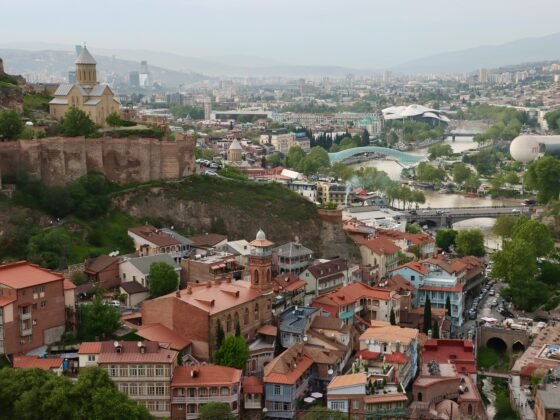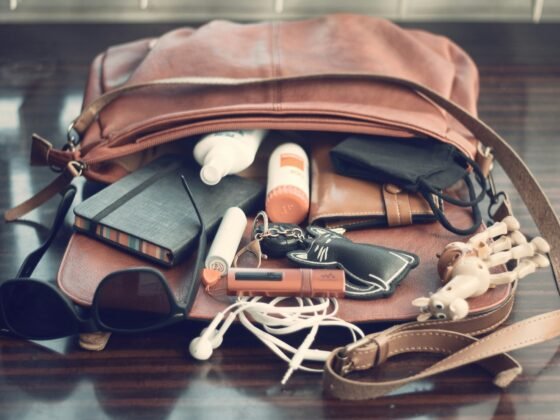Travellers are beginning to look for unusual activities to include whilst exploring new countries.
Volunteering is available virtually anywhere in the world, its accessibility has made volunteering popular to combine with travelling.
Here’s everything you need to know about volunteering abroad:
-
It is easier to use a volunteer sending organisation rather than organising everything yourself. They can take all of the stress away and help with every aspect of a trip, offering extra support. You’ll be able to email and call regularly, with any questions, right up to travel!
-
Most volunteering needs no skills. Unless you are looking to volunteer in a hospital, it is unlikely you will need to have prior experience or skills in the area. An organisation can help you find the right project for you.
-
Some volunteering organisations can be expensive; although affordable volunteering does exist, it doesn’t need to cost thousands of pounds for a couple of weeks.
-
The longer you can stay at a volunteer project the more you will get out of it. Allow more than a week, so that you can settle in and have a go at volunteering in more than one way.
-
Look for projects where you can mix up your experiences, if this will be your first time. Some projects allow you to do one activity for one week and another the next. Other projects allow volunteers to help in different ways every day.
-
Keep your expectations low. Volunteers expecting accommodation similar to that of a 5-star resort, with a private room and en suite will be disappointed. Volunteer accommodation can be varied and is usually humble from tents to large shared dormitories.
-
Volunteering is a very social activity, often you will be volunteering in a group with like-minded people. However, the atmosphere is often not catered to those looking for nightly bar crawls and all-night parties. There might even be a curfew at the volunteer accommodation!
Why Volunteer?
Travellers include volunteering in their trip for many different reasons. Some choose volunteering as an affordable way to travel, especially for longer stays. Families have begun favouring volunteering abroad over more generic beach holidays as children can get more out of volunteering and learn more. Mature volunteers may be planning a career change and want to gain experience or informally try the industry before they settle into a new role.
Volunteering also allows travellers to meet like-minded people, learn about another culture, give back to a community and help others. Volunteering is proven to help improve both mental and physical health and promotes personal growth. Some people find volunteering helpful after difficult periods in their lives, to put things in perspective.
Independent versus Organisation?
Organisations are available to help with all the advice you need to set up and arrange a placement overseas.
They help with every aspect of the trip, obtaining a visa, booking flights, getting the correct jabs and arrange an airport pick up. Supported projects have teams who arrange volunteering and offer support where needed. They can help if anything goes wrong and offer extra assistance.
Low cost organisations include:
Help Stay
Help X (https://www.helpx.net/)
Volunteerssouthamerica.net
Original Volunteers (https://www.originalvolunteers.co.uk/)
Work Away
There is a degree more flexibility organising a volunteering project independently. Choose which country you wish to help, find a charity or project in the area you wish to travel to and offer your services.
Contacting a project direct doesn’t mean that you won’t get any help, however staff may be busy with work and not able to answer any questions you have about visas or organise an airport pick up. They expect their volunteers to be more independent.
Things to think about:
-
Has the project at your destination hosted volunteers before?
-
Will there be other volunteers during your visit?
-
Can an airport pick-up be arranged?
-
Are meals included or is the project self-catered?
-
Is bedding provided?
Choosing the location
Before settling on a destination for volunteering, make sure to check the weather expected during your visit. Not everyone knows that seasons in the southern hemisphere are opposite to those in the north. It can be quite a shock leaving sunny England in August to arrive in Argentina to snow. Make sure to check the seasons, as they may be different to home countries.
Another detail to consider when deciding on a project is looking at how remote it is. Are there local shops that you can reach if you run out of something? Is WiFi available or local internet cafes to communicate back home? Most importantly, how close is the project to a modern hospital?
Returning completely back to basics, without local shops and internet access appeals to a growing number of travellers. However, if they fall ill and need to trek a couple of days down a mountain trails to the closest hospital they might regret their decision.
What will it be like?
Every volunteering project is very different, it is difficult to say what each one will be like as they are all so unique. Here are some generalizations across typical project types.
Accommodation is usually basic, and volunteers often sleep in dormitory style rooms. Where possible these will be single sex, although not always. There are shared areas to relax in during the day and often there is a kitchen where volunteers can make snacks and drinks.
Projects try to offer a schedule, these should be taken as a rough guideline only and not set itineraries. Days and times may change at little or no notice, you could wake up thinking you are volunteering at one place and you could be helping elsewhere or having the entire day off.
Volunteering is generally 5 days a week with 2 days off, days off don’t always fall on the weekends, especially if working with animals. Generally volunteering is on a part time basis, not long days of full time hours.
Not every project and accommodation will have access to Wi-Fi, if there is no internet access find out where the closest internet cafe is to communicate with back home. It is always worth taking a guide book, to find out what is close by for locals and tourists on days off.
Usually projects will have at least one permanent team member who speaks English, other staff may not. It is worth learning a few phrases and practice this with the locals, speaking in their language you will make instant friends.
Amongst local people and fellow volunteers, you may make friends for life. This happens more on volunteering projects than making friends on regular hotel holidays, as you spend so much time living and working together in additions to sharing new experiences. You may even plan a second volunteer trip with friends you’ve made!
Travel Visas
Some countries require a visa to enter the country. Some visas can be obtaining upon arrival, others must be applied for a couple of weeks before travel. The FCO website has details about visas and how best to obtain them and what documents are needed.
Different countries require a specific visa for volunteer work. These can cost more than tourist visas. Hosts and organisations should be able to help advise on which is required, costs and how to apply.
Insurance
Travel insurance is something you wish you never have to use but it’s wise to always have a policy in place. There is no specific ‘volunteer travel insurance’ despite what some insurers appear to claim. A general worldwide backpacker policy will cover all the sorts of activities travellers will often take part in. There may be exceptions, for example working with sharks or dangerous sporting activities may incur an additional charge, do check what is and isn’t covered before you travel.
Make sure not to take expensive products which aren’t covered by your travel insurance. Check what health cover is provided so if you fall ill you are still covered. Hospital bills abroad are not cheap, a couple of days bed rest in hospital might be $700 without treatment.
What to Take
Before packing for your trip, check the weather and temperature of your destinations. Be sure to take weather appropriate clothing and check the night time temperature as well. It can be sunny and hot during the day but once the sun goes down, it might be sub-freezing.
Some projects ask their volunteers to bring bedding with them, after you have checked the night time temperatures, decide if you want to take summer or winter weight sleeping bag.
Don’t forget to take resources along to use whilst volunteering. Building programmes may need volunteers to bring tools, protective gloves are also useful for building or volunteering with animals.
Schools abroad have few resources due to lack of funding. They often need teaching equipment and arts and craft materials for the children. Any project will be happy to advise what to bring with you and any donations that would be appreciated.












